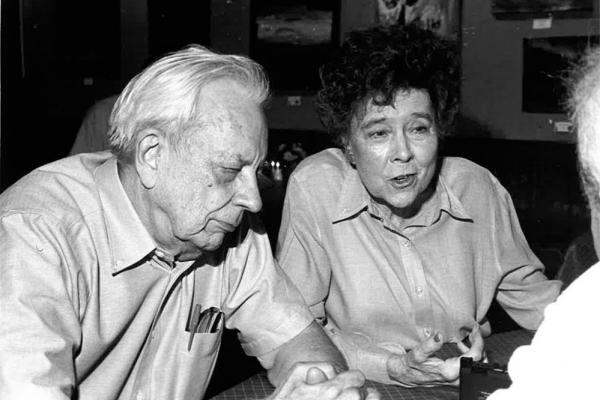Gordon Cosby was perhaps the most Christian human being I have ever known. But he would always be the first to raise serious questions about what it meant to be a “Christian” and lived a very different kind of life than many of his fellow pastors and church leaders who call themselves Christian. Gordon was always happier just calling himself a follower of Jesus. He always told people who wanted to call him “Reverend” to just say “Gordon.”
At 4:15 Wednesday morning, Gordon went home into the arms of Jesus. At 94 years of age, he died in hospice at Christ House, a medical living community for the homeless, and one of the myriad of ministries formed by the Church of the Saviour in Washington, D.C., which Gordon and Mary Cosby founded in 1950.
Gordon Cosby and the Church of the Saviour were one of the most important reasons that Sojourners decided to come to Washington in 1975. And we have been spiritually intertwined ever since. For Sojourners, Gordon was a mentor, elder, inspirer, supporter, encourager, challenger, and retreat leader. For me, personally, he was a pastor and my most important spiritual advisor and director. Our countless times together provided me more wisdom, care, support, discernment, and direction than I ever found with anybody else. And never have I felt more prayers for me from anyone than I did from Gordon Cosby, especially in the closing years of his life.
Read the Full Article

